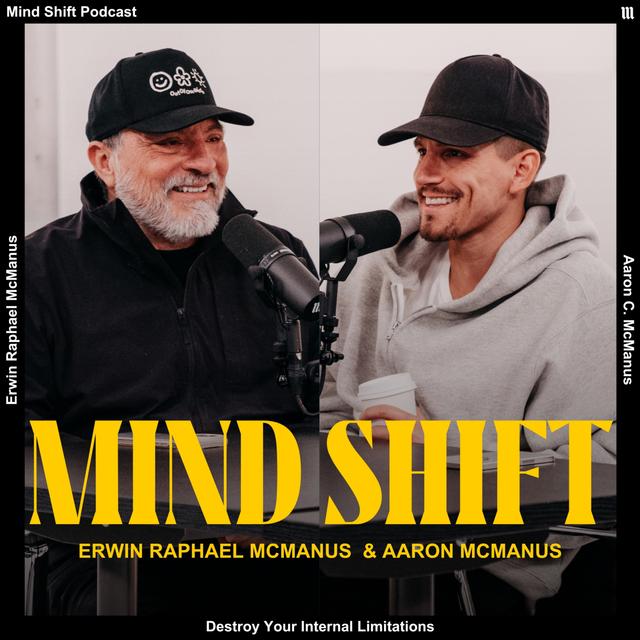
#092 Truth In Heresy: Challenging Orthodoxy
Episode description
In this episode of the Mind Shift Podcast, Aaron and Erwin McManus reflect on a major transition as Mosaic moves out of its long-time Hollywood home. They recount the final worship night where nearly 900 people gathered and 70–80 baptisms took place, marking the end of an era. The conversation touches on the new campuses now emerging in Calabasas, South Pasadena, Culver City, and Studio City. Erwin shares emotional reflections on the legacy of the building and the many lives transformed there, while Aaron underscores how movement and growth have always been part of Mosaic’s DNA.
The episode also dives into the ongoing exploration of Genesis and the growing interest from new audiences, with a notable 60–80% of listeners being first-time participants. Erwin explains why staying in Genesis offers endless opportunities for reflection and theological curiosity. They emphasize the importance of disagreement and diversity of thought within their community, encouraging listeners to engage, question, and wrestle with scripture. This ethos of open dialogue and mutual respect shapes their approach to both the Bible and the people engaging with it.
As the discussion unfolds, Aaron shares a moment where he called out performative criticism in church culture, and Erwin unpacks how terms like “heretic” are often weaponized to enforce conformity. Drawing from history, they discuss how ideas once deemed heretical—like heliocentrism—eventually reshaped how we understand truth. Erwin stresses the necessity of intellectual honesty and the courage to question long-held traditions. The conversation becomes a call to spiritual integrity, where truth is not inherited but discovered through inquiry and faith.
Throughout the episode, Erwin shares his own theological journey and how he starts with Jesus—not a system—when interpreting scripture. Using analogies like Oppenheimer’s role as a theorist, he explains his focus on deep questions over surface answers. This leads into a thoughtful reflection on the Old Testament, which he compares to stories like *Braveheart* and *Gladiator*, noting how its themes of freedom, honor, and struggle mirror real human experience. He reminds listeners that the Bible was written by the oppressed, not the powerful, and that its messiness is part of its authenticity.
Finally, the conversation turns toward the future of theology and the church. Erwin critiques the stagnating effect of the phrase “there’s nothing new under the sun,” arguing that it limits innovation and imagination in faith communities. He shares his own experience being blacklisted for advocating creativity and change, and stresses the urgent need for early adopters and innovators to influence theology today. The episode closes with talk of future long-form episodes, community events in different cities, and a shared excitement to keep exploring faith, scripture, and transformation—starting with Jesus and moving outward from there.